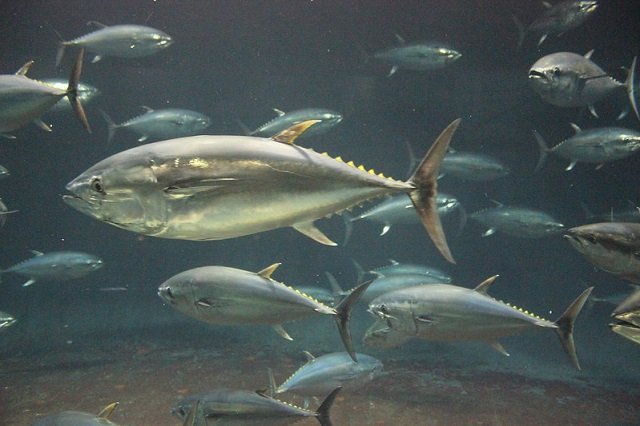Melbourne, USA.- A team led by Florida Institute of Technology’s Jonathan Shenker and Paul Wills of Harbor Branch Oceanographic Institute at Florida Atlantic University has for the first time successfully induced spawning of wild bonefish and hatched the fertilized eggs into larvae.
The Bonefish Restoration Research Project, an initiative sponsored by Bonefish & Tarpon Trust, has been attempting since 2016 to spawn and raise bonefish in captivity. The researchers reached this milestone during field experiments in January in the Bahamas, with assistance from the Cape Eleuthera Institute.
The team successfully used injections of reproductive hormone to induce final-mature eggs in a female that had been captured from the wild in a pre-spawning state of development.
Bonefish are integral to Florida’s travel and tourism industry. It is estimated that bonefish, tarpon and other species in the ‘flats fishery’ contribute more than $465 million annually to the economy in the Florida Keys.
“Ultimately, success in this project will give us another tool in our toolbox as we work to restore the bonefish population in the Florida Keys,” said Bonefish & Tarpon Trust President Jim McDuffie.
Through BRRP, the Bonefish & Tarpon Trust, in collaboration with the National Fish and Wildlife Foundation and Harbor Branch Oceanographic Institute, is pioneering the spawning and rearing of bonefish in captivity to provide stock to replenish the Florida Keys bonefish population as part of the broader restoration strategy. The primary goals of the five-year-long program, which began in mid-2016, are to learn how to spawn bonefish in aquaculture systems, rear the resulting larvae and juvenile fish, and ultimately, to help population restoration efforts in the Keys ecosystem.
“We now know that we can indeed get bonefish to spawn in captivity,” Shenker said. “This success will help us optimize methods to induce spawning of fish brought in from the natural habitat, and to spawn fish maintained for a long time in a controlled aquaculture facility.”
Wills added, “We are gaining a wealth of information about the biology of this species from this one successful spawn, and future spawns will only yield more.”
Stay Always Informed
Join our communities to instantly receive the most important news, reports, and analysis from the aquaculture industry.
Find out more about the Bonefish Restoration Research Project at: https://www.bonefishtarpontrust.org/conservation/research/projects/bonefish-restoration-research-project
Source: Florida Institute of Technology
Editor at the digital magazine AquaHoy. He holds a degree in Aquaculture Biology from the National University of Santa (UNS) and a Master’s degree in Science and Innovation Management from the Polytechnic University of Valencia, with postgraduate diplomas in Business Innovation and Innovation Management. He possesses extensive experience in the aquaculture and fisheries sector, having led the Fisheries Innovation Unit of the National Program for Innovation in Fisheries and Aquaculture (PNIPA). He has served as a senior consultant in technology watch, an innovation project formulator and advisor, and a lecturer at UNS. He is a member of the Peruvian College of Biologists and was recognized by the World Aquaculture Society (WAS) in 2016 for his contribution to aquaculture.



